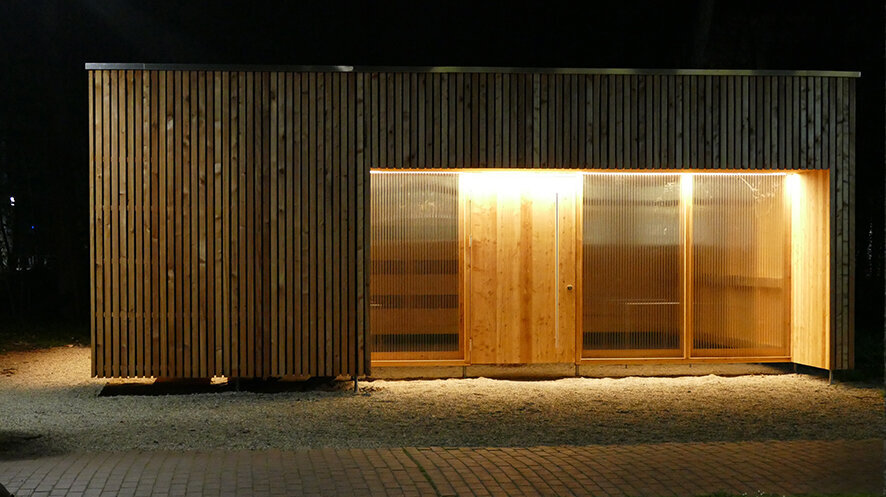April 16, 2025
The project originated from the ideas competition “Mobility concepts for an emission-free campus”, during which a concept for emission-free mobility was developed at Karlsruhe University of Applied Sciences (HKA). A central element of this concept was the integration of locally generated renewable energy with e-mobility. "The current rapid rise of e-bike use," says Prof. Dr. Jan Riel from the Faculty of Architecture & Civil Engineering (AB), “opens up great potential to replace even longer car journeys with e-bikes, which could lead to substantial emissions reductions. HKA's ‘Solar- e-bike terminal’ project builds on this concept and further combines it with the objective of sustainable construction.”
Specifically, the following goals were set for the development of an e-bike terminal prototype
Build largely from renewable raw materials (wood)
Replicable, i.e. transferable to other locations
Contribute to the promotion of (electric) cycling
Local generation of energy through photovoltaic modules
Corresponding social components
First of all, it was important to find a suitable location on campus. In addition to a good bicycle network connection and proximity to buildings with a large number of university members, the aim was to achieve efficient local energy generation with the best possible solar exposure. "In order to achieve a building with a low CO2 footprint, an interdisciplinary team from the Faculties of Electrical Engineering & Information Technology (EIT) , and Architecture & Civil Engineering (AB) planned a timber construction-compatible, minimally invasive and recyclable building. Instead of the usual concrete foundations, removable screw foundations were used. All structural elements are made of wood or wood-based materials, sourced as locally as possible," says Prof. Dr. Robert Pawlowski (AB faculty), who is responsible for the timber construction in the project. Thanks to the design approach, all wooden surfaces can remain untreated, and the building materials were carefully chosen for their recyclability. The construction plans are also available in digital form, compatible with modern processing machines for timber elements, enabling the e-bike port to be easily replicated in other locations. "The building does more than just provide a place to park and charge e-bikes—it also serves as a social hub for learning, relaxing, and spending time," says Prof. Dipl.-Ing. Armin Günster (AB faculty), who was also responsible for the design. “This is especially evident in the inviting bench integrated into the south façade.” The construction itself was carried out collaboratively with students and carpentry apprentices from KOMZET Bau Bühl , the vocational training center of the South Baden construction industry. This collaboration not only enriched the learning experience but also reflects the project's social dimension, fostering teamwork between future professionals in architecture and construction.
There were two decisive factors when planning the photovoltaic system: the output required to charge the e-bikes and the battery storage unit, and the available roof area of the bicycle garage. The aim was to ensure that all e-bikes could be fully charged within an hour under optimal conditions. Power optimizers were installed to maximize the energy yield in changing light conditions and, in particular, to respond to shading from neighboring trees. These devices monitor the output of each individual solar module and bypass modules with reduced output.
These diverse tasks were carried out by an interdisciplinary team led by Prof. Dr.-Ing. Alfons Klönne from the Faculty of Electrical Engineering & Information Technology and Prof. Dipl.-Ing. Armin Günster, Prof. Dr.-Ing. Robert Pawlowski and Prof. Dr.-Ing. Jan Riel from the Faculty of Architecture & Civil Engineering and closely coordinated with KOMZET Bau with regard to practical implementation.
The federal state of Baden-Württemberg has set ambitious targets for the transport and mobility transition, aiming to reduce transport-related emissions by 55% by 2030. One key strategy in reaching this goal is the promotion of cycling. E-bikes, for example, require only about one-twentieth the energy of an electric car to travel 100 kilometers.
"With today’s inauguration of the e-bike terminal at HKA,” says Prof. Dr. Jan Riel, “we are not only offering university staff an attractive option on the path to a climate-neutral campus—we’re also making a pioneering contribution to the development of climate-neutral mobility: A core challenge we’re addressing is that, in everyday life, electric vehicles often can’t be charged with solar power from home photovoltaic systems, since they are typically parked at the workplace during the day. As a result, charging often relies on grid electricity in the evening."
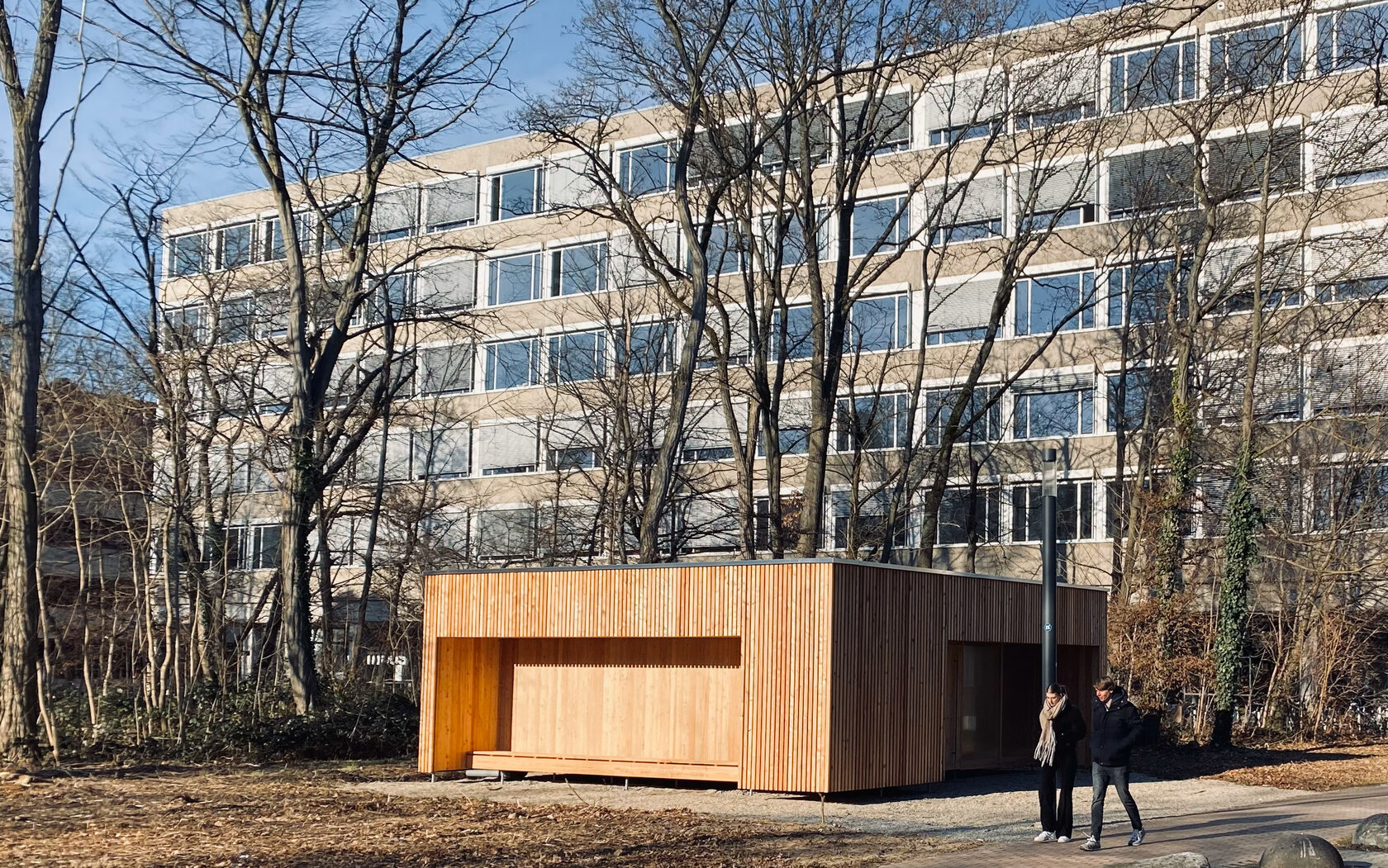
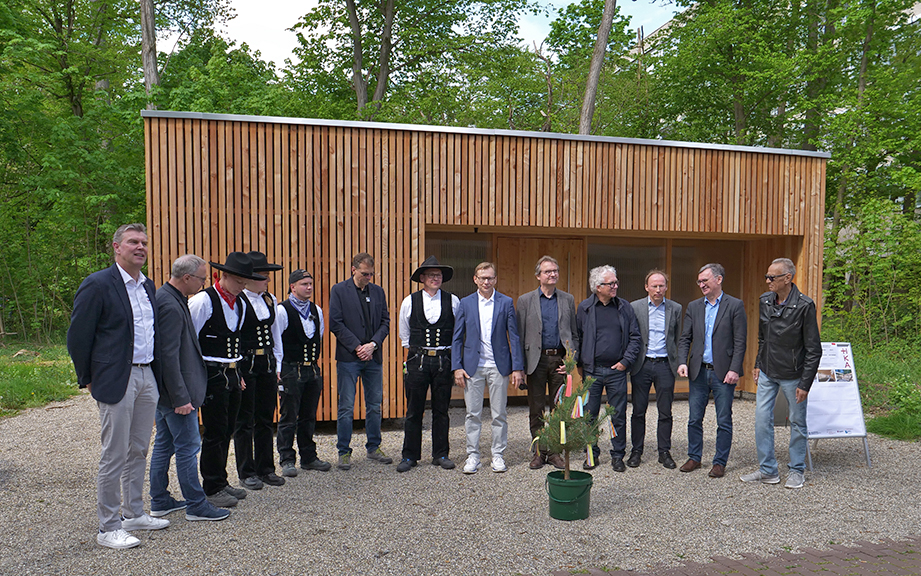
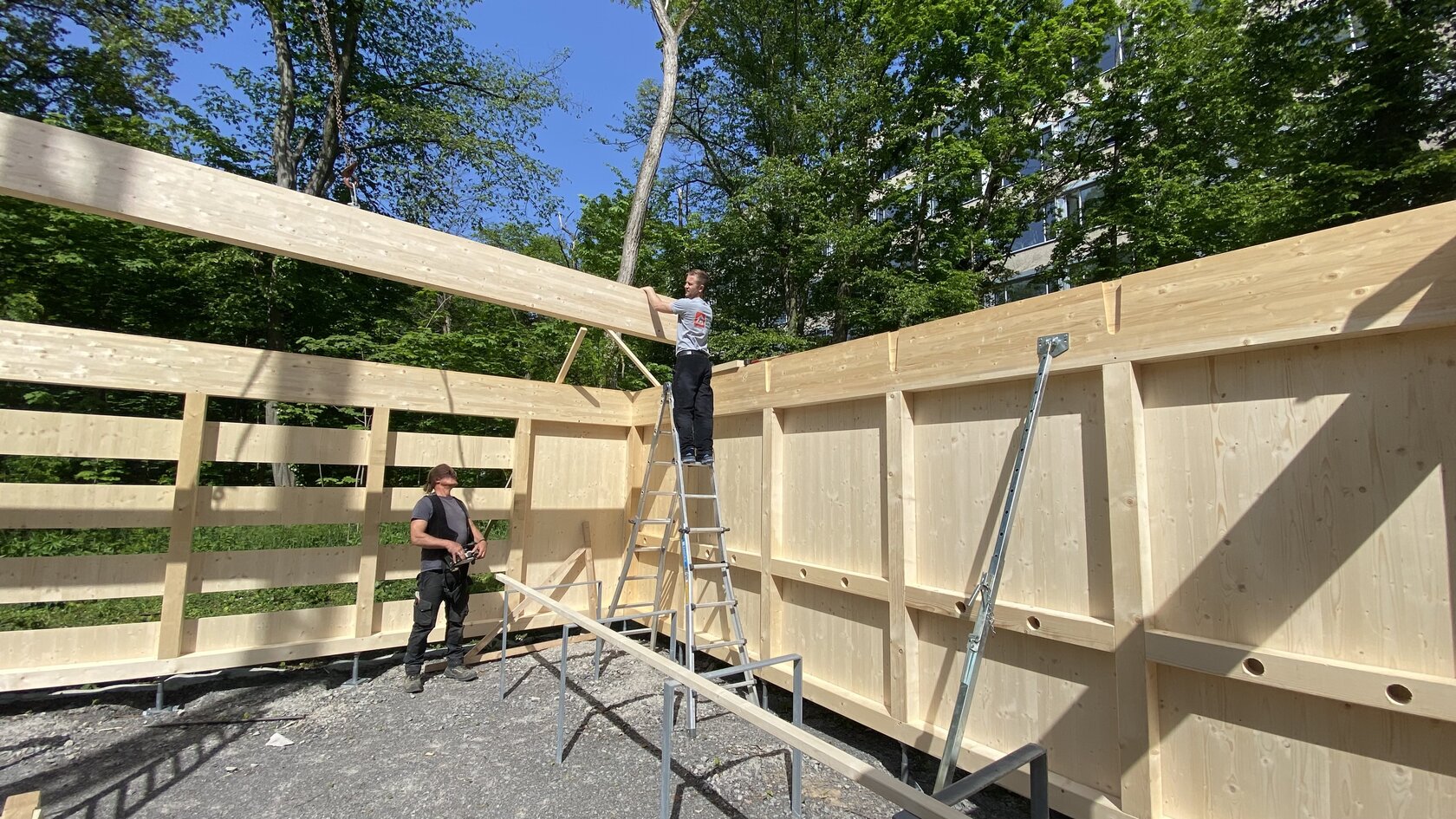
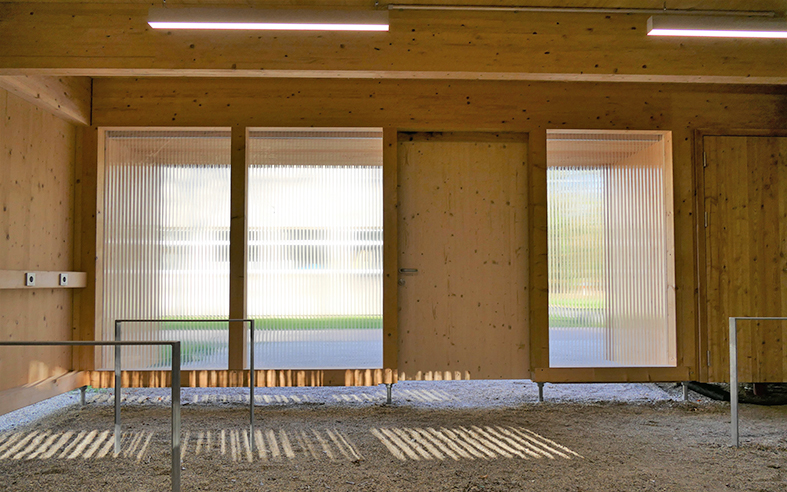
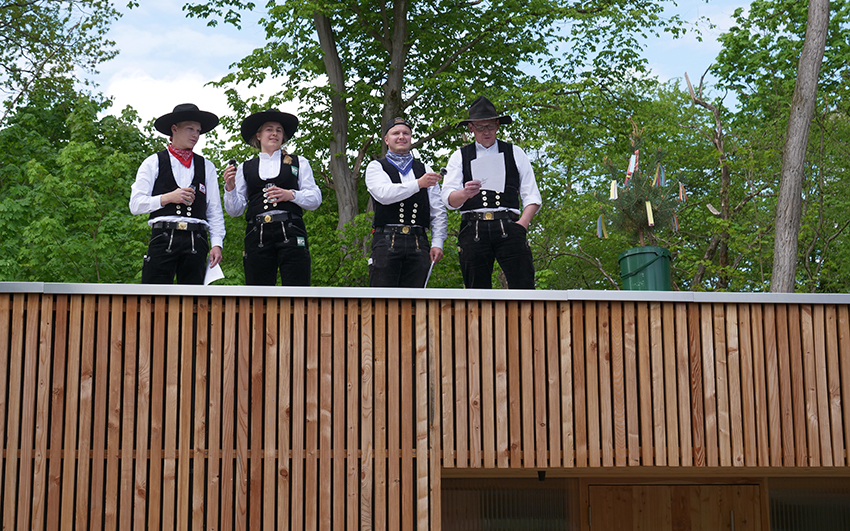
External content
To use this content (Source: www.xyz.de), please click to Accept. We would like to point out that by accepting this iframes data to third parties transmitted or cookies could be stored.
You can find further information in our Privacy policy.
